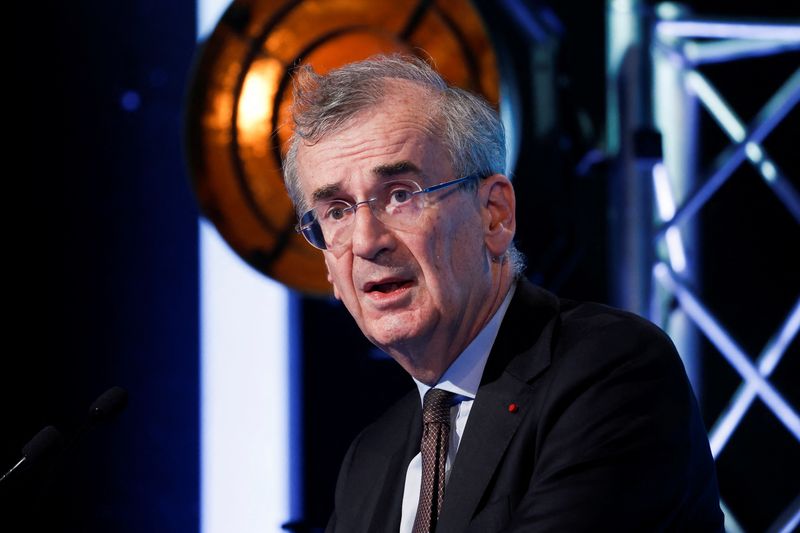FRANKFURT (Reuters) - The European Central Bank must not stop raising interest rates until underlying inflation has clearly peaked, but it may slow the pace of hikes once rates hit a level that starts to restrict growth, France's central bank chief told the Irish Times.
The ECB has increased rates by a combined 200 basis points to 1.5% in just three months, its fastest pace of hikes on record. Markets see them peaking at around 3% next year, suggesting that a further series of raises is still coming to tame rapid and broad-based inflation.
"As long as underlying inflation has not clearly peaked, we shouldn't stop on rates," the newspaper quoted French central bank governor Francois Villeroy de Galhau as saying on Monday.
As in much of the world, euro zone inflation has soared this year as a result of sky-high energy costs, but even underlying price growth, which filters out volatile food and fuel prices, hit 5% in October, more than twice the ECB's 2% target.
Headline inflation, which jumped to a record 10.7% last month, could peak in the "first semester" of 2023, Villeroy added, warning that it could take two to three years to bring inflation back to the ECB's target.
Rapid rate hikes have, however, put the ECB close to the so-called neutral rate, an undefined mark seen somewhere between 1.5% and 2%, where the central bank for the 19 countries using the euro is neither stimulating nor slowing growth.

"We are not far from the neutral rate, beyond which our hiking pace could be more flexible and possibly slower," Villeroy told the Irish Times in an interview.
Markets now expect a 50 basis point rate hike in December after back-to-back 75 basis point moves, to be followed by another 50 basis point increase in February.